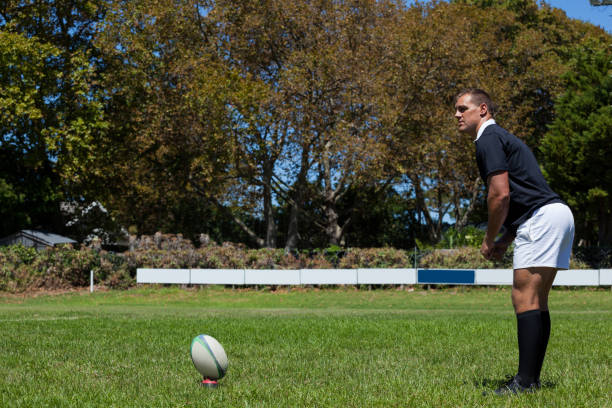Chasing Sporting Glory: A Comprehensive Guide to Sports Scholarships in South Africa
South Africa boasts a rich sporting tradition, nurturing talented athletes across various disciplines. For aspiring young sports stars, a scholarship can be the golden ticket to elevate their game, access world-class training facilities, and potentially launch a professional career. This comprehensive guide equips you with the knowledge and strategies to navigate the world of sports scholarships in South Africa, transforming your on-field talent into academic and athletic success.
Advertisements
Understanding the Landscape of Sports Scholarships
Sports scholarships exist at various levels in South Africa, catering to athletes of different age groups and skill levels. Here’s a breakdown of some common options:
High School Sports Scholarships:
- Offered by prestigious private schools with renowned sports programs (e.g., Bishops College, Glenwood High School, Paarl Gymnasium).
- Provide financial assistance towards tuition, boarding fees, and potentially additional expenses like equipment or specialized training programs.
- Highly competitive, requiring exceptional playing ability demonstrated through participation in provincial or national age-group teams alongside strong academic performance.
University Sports Scholarships:
- Offered by universities with established sports teams competing in national leagues or tournaments like the Varsity Cup (e.g., University of Stellenbosch, University of Pretoria, University of Cape Town).
- Vary in value, covering a portion or entirety of tuition fees, accommodation, and living expenses. Selection is based on a combination of athletic prowess evaluated through trials or game footage, academic record, and potential for future development as evidenced by playing experience and coachable traits.
Provincial Rugby Union Scholarships:
- Awarded by South African provincial rugby unions like the Blue Bulls, Sharks, or Western Province to identify and nurture future Springbok stars.
- Offer comprehensive support packages encompassing top-tier coaching, access to world-class training facilities, educational opportunities (often through partnerships with universities), and living expenses.
- Extremely competitive, requiring exceptional talent demonstrated through consistent performance at the highest age-group levels, exceptional fitness, and a dedication to the sport that goes beyond just playing.
Private and Corporate Scholarships:
Advertisements
- Offered by foundations, corporations, or individuals with a passion for sports development (e.g., Sharks Foundation, SAB Sports Scholarship).
- Eligibility criteria can vary but might prioritize specific geographic areas (e.g., scholarships focused on rural development), financial need, or playing positions (e.g., scholarships for promising young scrum-halves).
- Research opportunities provided by these organizations and others to find scholarships that align with your sport, playing style, and long-term goals.
Unveiling Eligibility Criteria – The Making of a Strong Candidate
Meeting the eligibility criteria is crucial to secure a sports scholarship. Here are key factors that scholarship committees consider:
-
Athletic Ability: Demonstrated talent and exceptional skills on the field are paramount. Consistently perform at a high level at club or school level, participate in provincial or national age-group teams, and compile impressive game statistics showcasing your strengths in areas like scoring, tackling, or game management. Compile high-quality video footage showcasing your best attributes and playing style from various game situations.
-
Academic Performance: Academic performance is a significant consideration for most scholarships. Maintaining good grades demonstrates discipline, commitment, and the ability to balance academic and athletic demands. Specific GPA requirements might exist depending on the scholarship program. Don’t neglect your studies – strong academic performance is essential to qualify for scholarships and thrive in the demanding environment of balancing academic pursuits with a high-level sporting career.
-
Leadership Potential: Leadership qualities are highly sought-after. Do you captain your team? Do you take initiative on and off the field by organizing training sessions, mentoring younger players, or embodying a positive team spirit? Highlight instances where you displayed leadership qualities, motivating teammates or contributing positively to the team environment.
-
Sportsmanship and Character: Demonstrate good sportsmanship, respect for referees and opposing teams, and a commitment to fair play. A positive attitude, dedication to training, and a strong work ethic are valued attributes. Coaches and mentors can provide insights into your character and sportsmanship, so maintaining a positive reputation within the sporting community is crucial.
-
Future Potential: Scholarship committees look for athletes with long-term potential. Highlight your desire to learn, grow as a player, and contribute to your team’s success at the highest level. Your passion for your sport, your dedication to ongoing development through video analysis, skills training, and fitness regimens, and your vision for your future in the sport are crucial factors.
Building a Strong Application – Showcasing Your Talent and Potential
A well-crafted application is critical to securing a sports scholarship in South Africa. Here’s how to create a comprehensive package that effectively highlights your athletic prowess, academic achievements, and potential for future success:
Essential Application Materials:
Gather all the necessary documents well in advance of application deadlines. These typically include:
- Completed Application Form: Ensure all sections are filled out accurately and completely. Pay attention to detail and follow any specific instructions provided by the scholarship provider.
- Academic Transcript: Request official transcripts from your high school or current educational institution. These documents showcase your academic performance and ability to manage a demanding workload.
- Standardized Test Scores (Optional): While not all scholarships require standardized testing, some might consider scores from the Academic Performance Index (API) or the National Senior Certificate (NSC) examinations as indicators of academic potential. Research specific requirements for each scholarship you target.
Athletic Achievements and Performance:
- Sports Resume: Create a well-structured sports resume that summarizes your athletic career. Include details like the sports you participate in, competition levels (club, provincial, national), individual and team achievements, awards received, and relevant statistics showcasing your performance. Highlight participation in prestigious tournaments, camps, or training programs.
- Highlight Reel: A high-quality video showcasing your best athletic moments can be a powerful tool. Compile footage that demonstrates your skills, game sense, versatility, and athleticism. Focus on recent game footage that captures your current abilities. Utilize online platforms or share your highlight reel directly with coaches or scholarship committees.
- Letters of Recommendation: Seek letters of recommendation from coaches, trainers, or mentors who can speak to your athletic abilities, work ethic, sportsmanship, and potential for future development. Provide them with relevant information about your goals and achievements to help them write compelling letters that support your application.
Personal Statement – Telling Your Story
The personal statement is your opportunity to go beyond statistics and accolades. Craft a compelling essay that outlines your unique story, highlighting your passion for your chosen sport, your long-term goals, and why you deserve the scholarship. Here are some elements to consider including:
- Motivation and Passion: Demonstrate your unwavering dedication to your sport. Explain what drives you to excel and how you approach challenged and setbacks.
- Future Aspirations: Outline your long-term goals within your chosen sport. Do you aspire to play professionally? Compete at the Olympics? Express your vision for the future and how this scholarship will contribute to achieving your dreams.
- Overcoming Obstacles:Have you faced any challenges or overcome adversity in your sporting journey? Sharing your experiences demonstrates resilience, perseverance, and the ability to overcome obstacles – valuable traits for any athlete.
- Commitment to Academics: Reaffirm your commitment to academic success alongside your athletic pursuits. Explain how you manage your time effectively and highlight any academic achievements or areas of focus that demonstrate your dedication to well-rounded development.
Beyond the Application – Strategies for Success
Creating a strong application is just the first step. Here are additional strategies to increase your chances of securing a sports scholarship:
- Start Early and Plan Strategically: Begin planning early in your high school career. Focus on consistently improving your skills through dedicated training and participation in competitive events. Research scholarship opportunities well in advance and identify programs that align with your athletic aspirations and academic goals.
- Maximize Your Exposure – Get Noticed by Scouts and Coaches: Perform consistently well at every competition, showcasing your talent and potential. Participate in provincial or national teams to gain exposure to a wider audience. Attend sports camps, tournaments, or events that attract scouts and coaches from universities or provincial sporting bodies. Network with coaches, trainers, and other individuals within your sport to build relationships and increase your visibility.
- Develop a Winning Mentality: Cultivate a positive attitude, strong work ethic, and an unwavering desire to succeed. Learn from your mistakes, maintain focus during competition, and demonstrate a commitment to continuous improvement. A winning mentality is a crucial attribute that scholarship committees seek in athletes.
- Maintain Top Physical Conditioning: Sports scholarships often require a commitment to maintaining peak physical fitness. Implement a rigorous training program that focuses on strength, speed, agility, and sport-specific conditioning. Develop a healthy diet and prioritize adequate sleep to ensure optimal physical performance throughout the application process and beyond.
- Financial Aid and Budgeting: Sports scholarships may not cover all your expenses. Explore additional financial aid options like student loans or bursaries to bridge any funding gaps. Develop a budget to manage your finances effectively. Prioritize covering essential expenses like accommodation, textbooks, and healthy meals.
- Maintain Top Physical Conditioning: Peak physical fitness is crucial for athletic success. Implement a rigorous training program that caters to your specific sport, focusing on strength, speed, agility, and sport-specific conditioning drills. Prioritize a healthy diet and adequate sleep to ensure optimal physical performance and maintain peak fitness throughout your scholarship journey.
- Mental Toughness and Resilience: The pursuit of sporting excellence can be demanding. Develop mental toughness and coping mechanisms to deal with setbacks and pressure situations. Visualization exercises, relaxation techniques, and seeking support from coaches, mentors, or sports psychologists can be valuable tools for maintaining focus, managing stress, and bouncing back from disappointments.
- Embrace the Student-Athlete Identity: Balancing academics and athletics requires effective time management skills and dedication. Prioritize studying, complete assignments on time, and utilize academic resources offered by your university. Communicate with professors and seek support if you face academic challenges. Remember, you are both a student and an athlete. Embrace this dual identity and strive for excellence in both aspects of your scholarship journey.
- Building Relationships with Coaches and Mentors: Developing strong relationships with coaches, trainers, and mentors goes beyond skills development. These individuals can provide invaluable guidance on navigating the demands of university athletics, offer career advice, and become sources of support and encouragement throughout your academic and sporting journey. Maintain open communication, be receptive to feedback, and demonstrate your commitment to learning and achieving your full potential.
Advertisements






